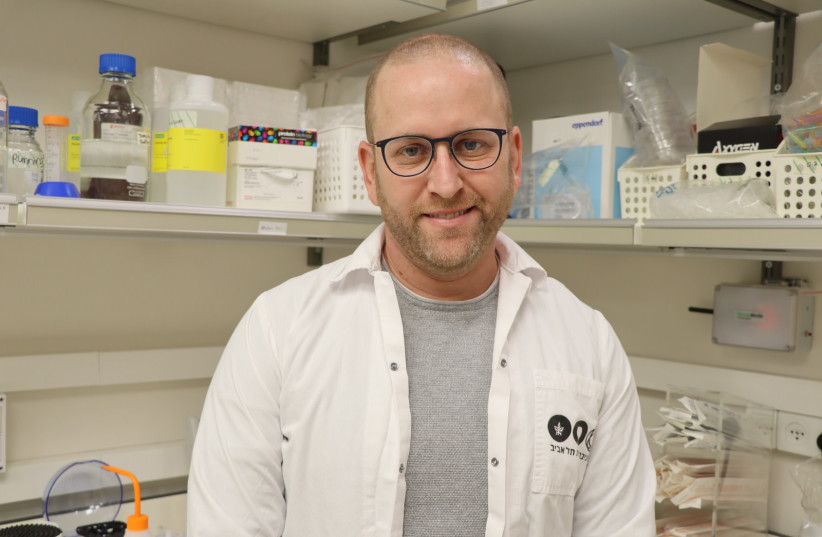A study by Tel Aviv University and the Hebrew University of Jerusalem has found that abnormal processes lead to disruption in the expression of genes essential for brain development in people suffering from Williams syndrome (WS).
In the past, the syndrome has been estimated to occur in about one in every 20,000 live births, but more recent epidemiological studies have placed the occurrence rate at closer to one in every 7,500 live births – a significantly larger prevalence.
What causes it?
It is caused by a genetic abnormality, specifically a deletion of some 25 genes from the long arm of one of the two chromosome 7s. Typically, this occurs as a random event during the formation of the egg or sperm from which a person develops, but in a small number of cases, it is inherited from an affected parent.
Most patients with this relatively rare, incurable multisystem genetic disease have a normal life expectancy. However, it affects many bodily systems, and some may live shorter lives due to complications of the disease such as cardiovascular problems such as supravalvular aortic stenosis (the narrowing of the large blood vessel that carries blood from the heart to the rest of the body) and periods of high blood calcium.
Ophthalmological problems are also common among patients. Facial features frequently include a broad forehead, underdeveloped chin, short nose, full cheeks, widely spaced teeth and a flattened nasal bridge.

Mild to moderate intellectual disability is observed in people with WS, with particular challenges with visual-spatial tasks such as drawing. Verbal skills are relatively unaffected. Many people with WS have an outgoing personality, an openness to engaging with other people and a happy disposition.
What did the researchers find?
The lead researchers – Dr. Boaz Barak at TAU’s School of Psychological Sciences and the Sagol School of Neuroscience and Dr. Asaf Marco from HU’s Faculty of Agriculture, Food and Environment – said that their findings could contribute to the future development of targeted treatments to achieve normal expression of the affected genes they identified. The pediatric psychiatry clinic at Sheba Medical Center at Tel Hashomer that is headed by Prof. Doron Gothelf specializes in treating children with the syndrome.
The research was published in the prestigious journal Molecular Psychiatry from the Nature publishing group under the title “In individuals with Williams syndrome, dysregulation of methylation in non-coding regions of neuronal and oligodendrocyte DNA is associated with pathology and cortical development.”
“Our research revealed new factors related to the disabilities that characterize WS. Instead of focusing on the effects of the missing gene, as has been done until now, we shed light on many more genes that are expressed in a defective manner. Building on our findings, it will be possible to focus future efforts on the development of targeted treatments that will reach the disrupted sites that we identified in the study in order to ‘correct’ the defective expressions,” Barak said.
“The study of the syndrome to date has mainly focused on the missing genes and their functions. We wanted to examine whether the syndrome is also characterized by defects in the genomes contained in brain cells which prevent the proper expression of essential genes,” said Barak. “Specifically, we asked: ‘Is it possible that certain genes are not expressed properly in the brains of people with Williams syndrome due to the phenomenon of methylation – when a molecule known as a ‘methyl group’ is located on a certain gene that is present in the genome, preventing it from expressing itself properly?”
To illustrate the phenomenon of missing genes, Barak took an instruction book in which some of its pages were torn out and as a result of the lack of these pages, anyone following the instructions would make mistakes. Similarly, hiding some of the letters in the pages left in the book with a black marker would result in instructions being corrupted, just like methylation on an existing gene disrupts its expression.
Methylation is in many cases a normal mechanism in the cells of the body, as its role is to prevent expression of certain genes when appropriate. But when there are disruptions in the correct application of methylation, the abnormal expression of the genes may lead to impairments in cell function, and subsequently to damage to various organs, including damage to normal brain development.
The team examined human brain tissues taken from adults with and without WS who died of causes unrelated to the syndrome and donated their brains to science. “We focused on samples from the frontal lobe, the area of the brain that is responsible for brain functions such as cognition and decision-making,” Barak added.
“In a previous study, we located in this area damage to the characteristics of the nerve cells and the cells that support nerve cell activity in people with Williams syndrome. In this study, we examined all the genes in all the cells of the frontal lobe to determine whether there are genes in people with WS that have undergone abnormal methylation processes,” he said. They found that indeed this was true.
“We uncovered significant information about the defective expression of genes in people with Williams syndrome, including the fact that the disruptions in methylation don’t have to appear near the gene whose function is impaired, and sometimes the disruptions are located at a great distance from it,” said Marco.
“This information is critical because it allows us to better understand the spatial organization of DNA and its effect on gene control. Moreover, since we know of enzymes that are able to remove or add methyl molecules, the next challenge will be to precisely direct those enzymes to the disrupted sites identified in our research, with the aim of allowing the genes to be properly expressed.”
